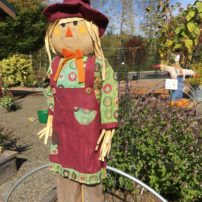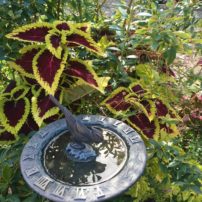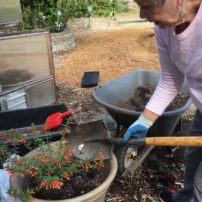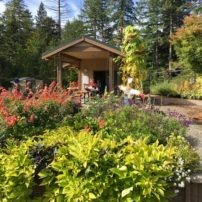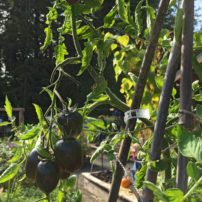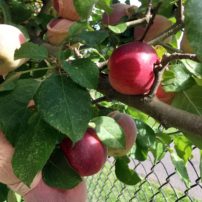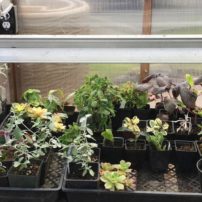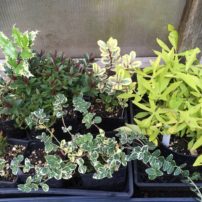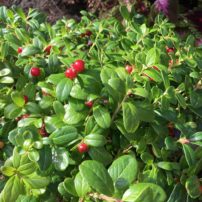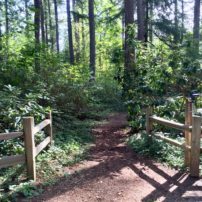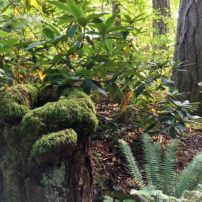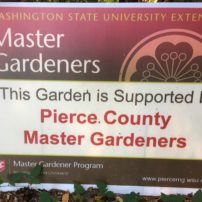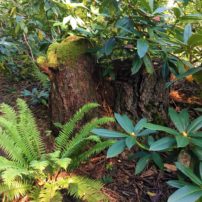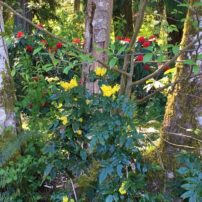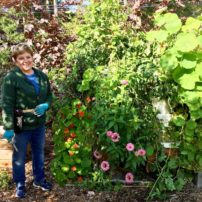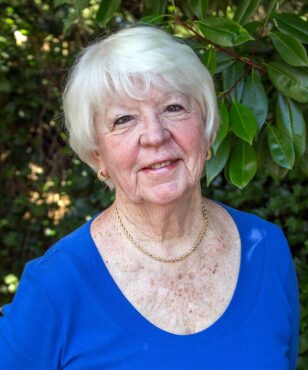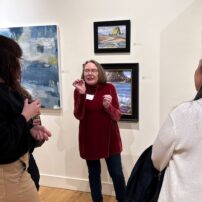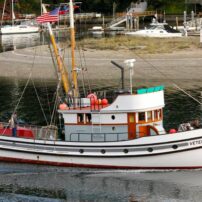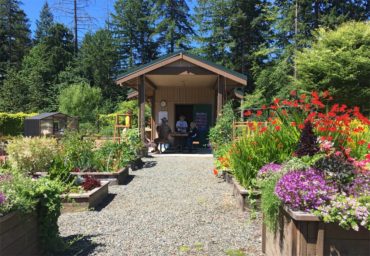
Imagine being a young woman in Germany in the 1890s and coming alone over the Atlantic Ocean, and across the entire continental United States, to a remote peninsula in the Pacific Northwest. That is what young Dora Gummert did when she came to Gig Harbor to marry Henry Sehmel (pronounced Zay-mul), who planned to farm and log his new 160-acre homestead. She raised chickens, sold eggs, and was much in demand in the wilderness because she was a midwife.
The second generation of Sehmels, Adolf and Verna, continued farming and were active in the life of the growing community. The third generation, Don and Mary Ellen Sehmel, became involved in local real estate and had a drug store in Gig Harbor in the 1940s.
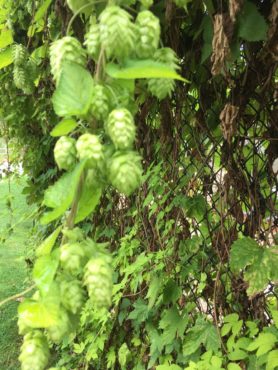
As they aged, Don and Mary Ellen Sehmel were planning to develop the land, which was down to 98 acres by then. But their son, Bill, wanted to find a way to preserve the old family homestead.
Fast forward to 2003, and the Sehmel homestead becomes Sehmel Homestead Park.
The Heritage Native Plant Garden
In 2003, the Peninsula Metropolitan Park District (PenMet) purchased the homestead. Most of the 98 acres would be cleared for sports-playing fields, a pavilion and walking trails, but a forested area on the edge of the park was designated for the Heritage Native Plant Garden. The first step in the process involved cataloging the heritage plants, mostly species rhododendrons that were planted around the homestead starting in 1974 when Don and Mary Ellen Sehmel lived there.
Under the direction of Jan Pittman, Karen Larson and a group of Washington State University Pierce County Master Gardeners, many of these grand old plants were moved to the forested area. The goal of the project was to provide a living history of native plants for educational purposes.
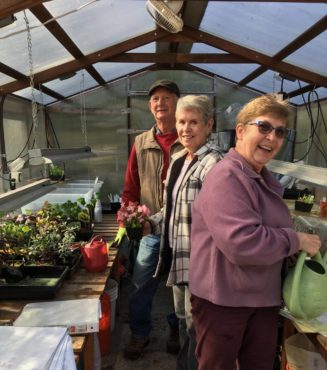
The area was carefully cleared of invasive undergrowth such as blackberries, while leaving the native shrubs, groundcovers and ferns. Paths were mapped out to meander through the woods and spaces were made to replant the rhododendrons. The moving of the rhodys was a major undertaking that involved hundreds of hours of volunteer time.
Many bluebells and snowdrops came along with the rhodys. More native plants from the conservation district plant sales were added over time.
At first, water had to be hauled by wagon from the demonstration garden to the native garden for hand watering, usually by Master Gardener Cyndy Dillon. Later on, thanks to a joint effort by PenMet and Master Gardener Joe Norberg, a drip system was added for irrigating the rhodys.
Today, there are detailed maps with a self-guided tour of the trail, including a QR barcode system to identify the native plants along the way. The garden is open any time the park is open.
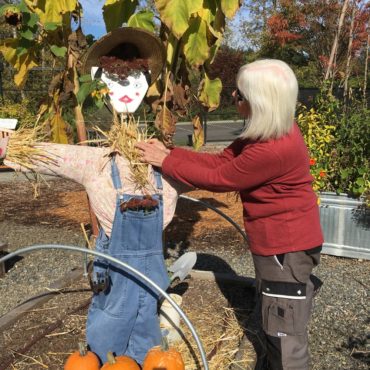
The Master Gardener Demonstration Garden
In the midst of the Heritage Native Plant Garden project, someone suggested that it might be a good idea to incorporate a Master Gardener demonstration garden. For MGs who live in the Gig Harbor area, paying the toll to cross the bridge made it inconvenient to volunteer at the demonstration garden in Puyallup. With a large membership of Master Gardeners in Gig Harbor, the group decided that a local demo garden was a feasible solution. PenMet agreed to include a packet of land adjacent to the heritage garden for the demo garden.
The demonstration garden opened in 2011. It is directly across the road from the native plant garden entrance and is enclosed by a tall, deer-proof fence. This garden focuses on ideas for the home garden, especially gardening in small spaces.
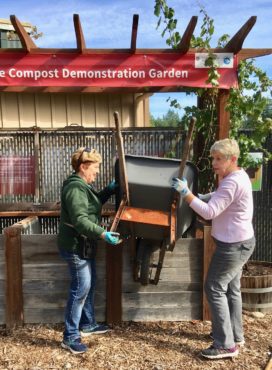
Debbie Weisdepp and Ann Maughan
Here, you will find a knot garden, espaliered fruit trees, a compost demonstration area, raised beds and seasonal plants including perennials, annuals and vegetables. A recent addition is a small greenhouse and a composting station. Plans are in the works for a vertical garden next summer.
Other projects include:
- A plant propagation group working year-round to provide new plants for the garden, as well as plants for the huge Master Gardener sale at the WSU research center in Puyallup every spring.
- A hydroponic garden built and maintained by Paul and Debbie Weisdepp. They grow an abundance of vegetables, which make up about 90 percent of the local food bank’s fresh vegetable donations.
- Children’s programs including an egg-hunt party in the spring, eco-camp in summer and a scarecrow festival in fall.
Volunteers are on hand for informal tours every Wednesday throughout the year from 9 a.m. to noon. Starting in April, the garden is open and Master Gardeners are available for questions every Saturday from 10 a.m. until 2 p.m. According to garden coordinators Jane Ostericher and Cyndy Dillon, summer classes and demonstrations will take place every Saturday at 11 a.m.
The WSU Pierce County Master Gardener Program does so much to improve gardening and the general environment of the local community. These two gardens are living examples of their efforts.




